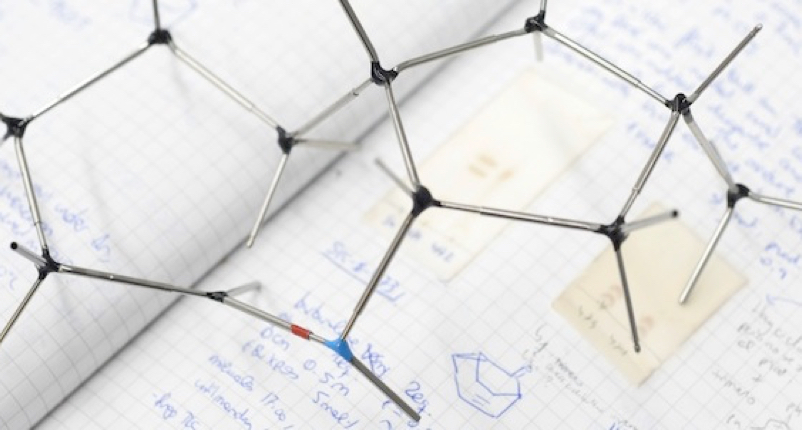Molecular Hybrid Materials for Selective CO2 Electroreduction to Multicarbon Products
Electrochemical devices, using renewable energy sources, for CO2 reduction (CO2R) coupled with water oxidation is an attractive strategy for the carbon-neutral generation of solar fuels and chemical feedstocks. Highly reduced multi-carbon (C2+) products (e.g., ethylene, ethanol, and propanol) are among the most attractive CO2R chemicals because of their commercial value and high energy densities. Here a new molecular hybrid material is reported that combines the capacity of molecular CO2R catalyst to generate CO with the capacity of Cu(0) materials to achieve C2+ products and further tune their reactivity with organic modifiers. A Fe-A(2)B(2) porphyrin containing two quaternary ammonium groups that set the right CO2R onset potential for a synergistic tandem performance with Cu2O nanocubes as the precursors is prepared. Furthermore, Fe-A(2)B(2) porphyrin is functionalized with two thiolate substituents in order to covalently anchor the molecular catalyst onto Cu providing an intimate interaction and great stability. The structural design enables a substantially enriched CO species adsorbed on Cu facilitated by the iron porphyrin catalyst that in turn facilitates the evolution of C2+ products, as demonstrated by in situ Raman spectroscopy. In addition, the whole electrode is further coated with phenyl modifiers that regulate the proton content and hydrophilicity in the neighborhood of the active centers. This approach affords Faradaic efficiencies in the range of 50% for ethylene and 77% for C2+ products at an applied potential of -1.05 V versus RHE.

Luo, Z.-M.; Wang, J.-W.; Nikolaou, V.; Garcia-Padilla, E.; Gil-Sepulcre, M.; Benet-Buchholz, J.; Rudiger, O.; Debeer, S.; Maseras, F.; Llobet, A.
Adv. Energy Mater. 2024
DOI:
10.1002/aenm.202402070

Let's create a brighter future
Join our team to work with renowned researchers, tackle groundbreaking
projects and contribute to meaningful scientific advancements





















